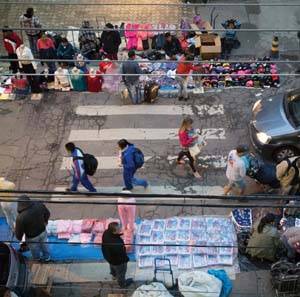When 15 year-old Malala Yousafzai was shot by the Taliban in 2012, it shocked the world. The story was astounding in its brutality. I was living in Karachi at the time. The initial response in Pakistan was of stunned horror: no-one – including Malala – thought that terrorists would deliberately target a child. But then, as always in Pakistan, the conspiracy theories began.
A lawyer acquaintance of mine, with generally liberal views, asked me if I didn’t think it strange that the western media was taking up the cause with such gusto. What about all the other children that die in Pakistan? Wasn’t the focus on this just a way to make the country look bad? I began to feel a sense of dread when people would say, conspiratorially, that they had a “radical” or “controversial” view about what happened to Malala. She was shot not by the Taliban, but by the Americans, to distract from drone strikes. She orchestrated it herself to get a visa for the UK. The Pakistani government did it to justify further military action in the north of the country.
These views are certainly not universal – a strong current of revulsion at what happened remains – but they are significant. There has been a resurgence of anti-Malala feeling over the last fortnight, as the teenager took on an intensive schedule of interviews to promote her new memoir, and waited to hear whether she had won the Nobel Peace Prize. (It went to the Organisation for the Prohibition of Chemical Weapons).
Yesterday, a prominent independent Member of the National Assembly, Jamshed Dasti, said that Malala was being used by the west to “defame the Taliban” and prevent peace talks, and that the media should “stop this drama”. His comments, like many others by mainstream figures, were remarkably similar in tone to those of the Tehreek-e-Taliban Pakistan’s leadership: “We are delighted she didn’t get it [the Nobel Price]. She did nothing big so it’s good she didn’t win.”
Where has this negative reaction sprung from? The New York Times suggests that the causes are, variously, “sensitivity at Western hectoring, a confused narrative about the Taliban and a sense of resentment or downright jealousy.”
Conspiracy theories are a national pastime and they are by no means unique to Malala. Indeed, when she didn’t win the Nobel, there was much speculation on social media that this was the result of a western plot to keep Pakistan from victory. One wonders if they were the same people suggesting that the shooting was a western plot to make Pakistan look bad.
It is easy to see where this tendency comes from: Pakistan's population has been repeatedly lied to by successive governments, in a country where the security services run riot, and where western geopolitical interests have frequently had a directly negative effect. Incidents such as the Osama Bin Laden assassination, for which the CIA used a vaccination drive as cover, cement the conspiracy narrative.
Pakistan's public is obsessed with how the country looks to the outside world. Most people would like to see an end to terrorist violence, and most would not condone the shooting of a 15 year old schoolgirl. But there is a feeling that dirty laundry should not be aired. The tendency towards conspiracy and criticising those who gain global prominence is intensely frustrating for those working for change within Pakistan. As several activists have told me over the years, this propensity for outlandish theories ultimately results in a refusal to examine the underlying issues. The latest conflicted reaction is personally painful for Malala ("Naturally it's hurtful when you see your brothers turn against you,” she told the Guardian), but it also risks confusing her message of education and anti-extremism in Pakistan, where it matters the most.

